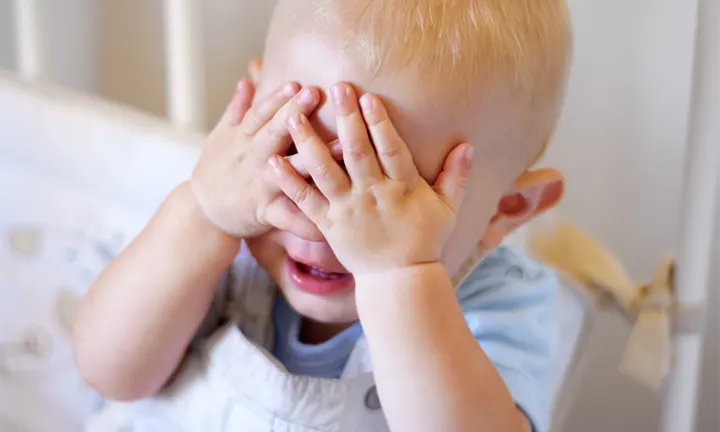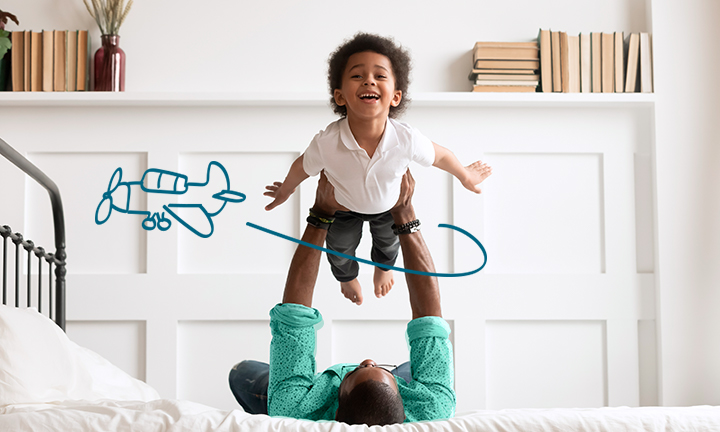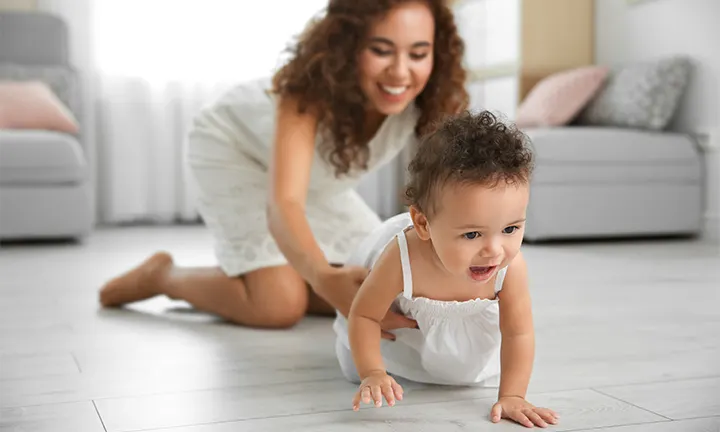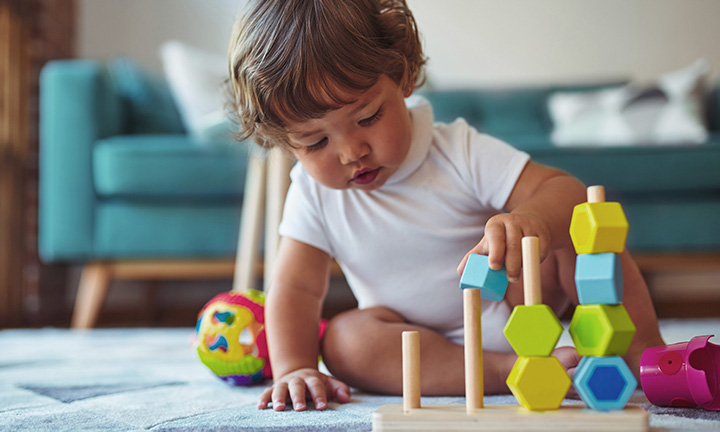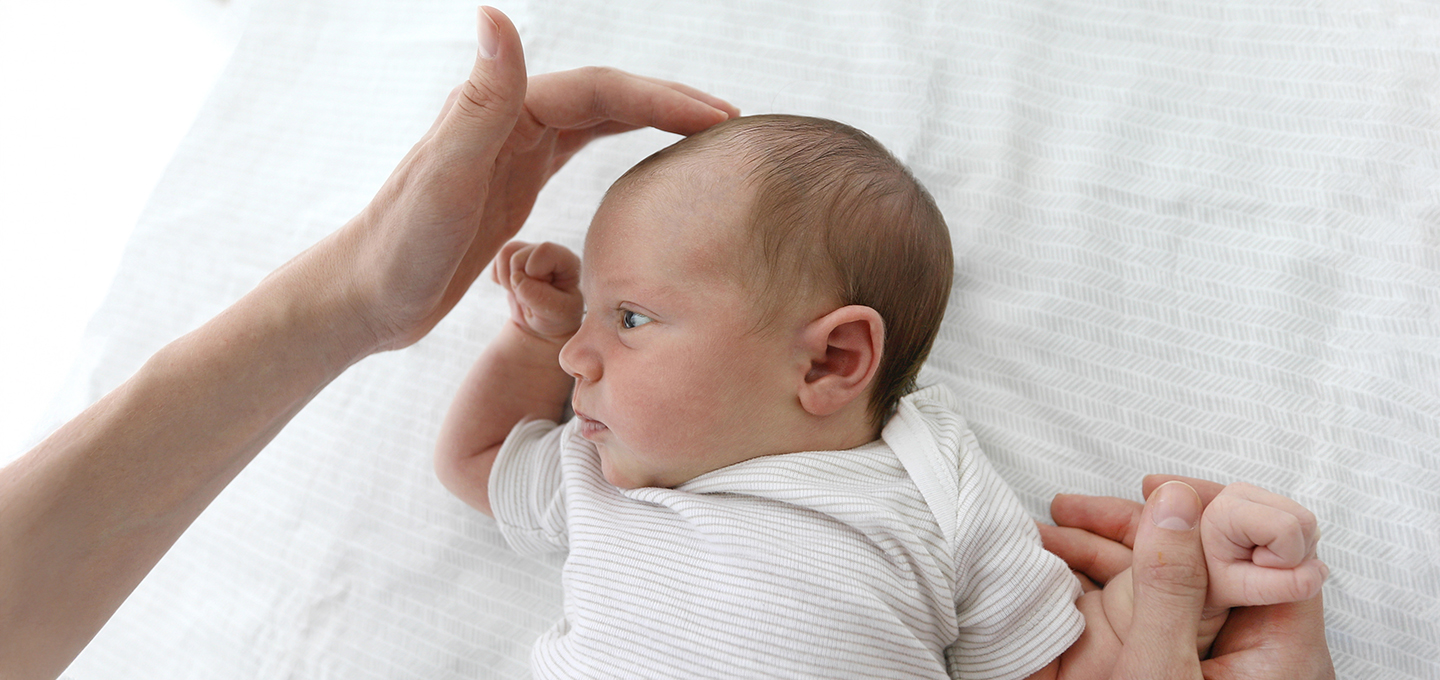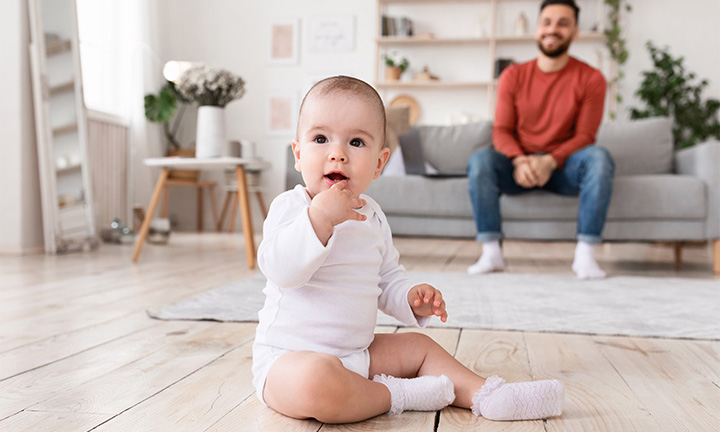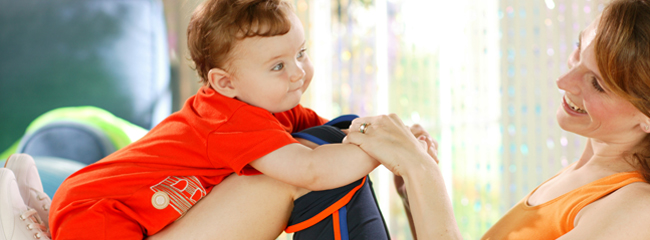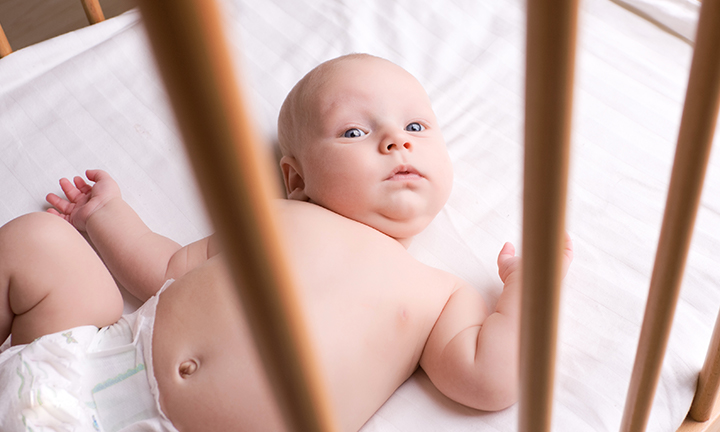
29 Baby Game Ideas for Your Baby's First Year
Are you looking for fun and development-boosting games to play with your baby? Engaging your little one through age-appropriate play is one of the best ways to support their physical, emotional, and cognitive growth. Activities like tummy time help build motor skills, while interactive games such as peekaboo encourage social development. Simple play can have a significant impact. Most experts recommend focusing on sensory-rich, repetitive, and responsive games that are tailored to your baby’s age and developmental milestones.
Here’s a quick guide to some popular baby games by age:
In this article, we will explore the best games to play with your baby at every developmental stage, explaining how each game supports growth, along with tips to make playtime safe, fun and meaningful.
Pampers Picks: Our Favourite Games for Babies
Here are three of our top baby games for early development, complete with step-by-step instructions and a clear focus on the skills each one supports.
Tummy Time
Helps develop: Neck and upper body strength, coordination and sensory exploration.
How to play
Why we love tummy time: Tummy time helps develop the muscles your baby needs for crawling and sitting, while also supporting early head control.
Monkey See, Monkey Do
Helps develop: Social and emotional connections, imitation, and early communication skills.
How to play
Why we love this game: ’Monkey see, monkey do’ taps into your baby’s instinct to mimic and helps them learn about emotions and social connection.
Peek-a-Boo
Helps develop: Object permanence, anticipation and emotional bonding.
How to play
Why we love peek-a-boo: This classic game teaches your baby that people and objects still exist even when out of sight, which is an important cognitive milestone in their development.
When Do Newborns Start to Play?
From their very first days, newborns begin to explore the world in their own gentle way – but their version of ‘play’ is quite different from what older babies enjoy. Early play is all about bonding, sensory experiences, and interacting with parents and caregivers, rather than relying on toys.
Simple activities such as talking softly to your baby, making eye contact, and gently moving their arms and legs help support early brain development. As babies reach around 6 to 8 weeks old, they become more alert and may begin to respond to familiar voices, smiles and gentle movement – showing growing curiosity and engagement during playtime.
How to Play With Your Newborn or Older Infant
How can you play with a newborn?
Start with simple, close-up interactions. Talking, singing softly or pulling gentle faces helps your baby learn to focus and connect with you. Even a short daily session of tummy time – just a few minutes – is considered play and helps build strength and motor skills.
What’s a good way to entertain a newborn?
Newborns are soothed and stimulated by your voice, your touch and familiar scents. Try slowly moving a high-contrast object in their line of sight or singing softly while they lie safely on their back. Be mindful of signs your baby has had enough, like turning away, fussing, or staring off, as these can all signal overstimulation.
How does play evolve as your baby grows?
From around 3 to 6 months onwards, many babies enjoy interactive games such as peekaboo, looking in mirrors or grasping soft toys. Follow your baby’s cues – they might show interest with a smile, coo or bright-eyed gaze, or signal when they’re ready for a rest. Responsive play that matches your baby's stage and mood is encouraged by experts as a great way to support development and bonding.
From Birth to 6 Months Old: Activities to Do With Your Newborn
These game ideas can work well for your newborn baby until they’re around 6 months old and sometimes beyond. Keep in mind that babies develop at different rates, so if a particular developmental game doesn’t work with your 3-month-old baby, it’s worth another try a few weeks or months later.
1. All Smiles
Your baby may begin to smile at around 4 to 8 weeks. This will be a good time to play a smiling game
Helps develop: Social connection, emotional bonding
How to play
Just smile at your baby and wait for them to smile back. Try making silly faces or soft noises to encourage a grin in return.
2. Show and Tell
‘Show and Tell’ isn’t just for school – it’s a wonderful way to introduce your newborn to the world through touch, sight and sound. It’s one of the most engaging sensory activities for newborns.
Helps develop: Sensory awareness, early language exposure
How to play
3. Clappity Clap
While newborns can’t clap on their own yet, helping them mimic the action introduces rhythm, sound and early cause-and-effect learning.
Helps develop: Hearing, motor coordination
How to play
Be patient, though: The motor skills your baby needs for clapping are quite complex and could take some time for them to master.
4. Pedal Pedal
This gentle ‘leg bicycling’ movement is great during nappy changes or playtime. It supports digestion, helps relieve wind or constipation, and encourages coordination.
Helps develop: Motor skills, digestive comfort
How to play
5. Tickle Me
Tickling with classic rhymes adds delight, builds anticipation and increases body awareness.
Helps develop: Sensory awareness, anticipation
How to play
6. Shake and Rattle
Using a gentle rattle or soft noisemaker helps your baby notice sounds and start tracking them visually.
Helps develop: Auditory recognition, hand-eye coordination
How to play
7. Bubble Blowing
Bubbles delight babies and help them practise visual tracking, reach and anticipation.
Helps develop: Tracking movement, eye-hand coordination, sensory engagement
How to play
8. Play Ball
Rolling a soft ball encourages movement, reaching and visual tracking – a simple yet effective early learning game.
Helps develop: Gross motor skills, visual tracking
How to play
9. Baby Gym (Play Gym)
A baby gym offers a safe environment for supervised free movement. Dangling toys tempt little hands and eyes, helping with coordination and curiosity.
Helps develop: Gross motor skills, sensory exploration
How to play
10. Chitchat
Talking with your baby – even long before they can talk – Is one of the most impactful activities you can do together. It helps build language skills, connections and brain foundations.
Helps develop: Language skills, social bonding
How to play
By the way, whichever nappy you use, comfort is key. Pampers Baby‑Dry nappies offer all-round protection and a flexible fit to support your baby’s movement and play – Ideal for these moments of discovery.
11. Fishing for Fun
This playful movement game encourages head lifting, visual tracking and reaching – especially during tummy time.
Helps develop: Upper-body strength, visual coordination
How to play
12. Read Aloud
Reading to your baby is a gentle yet powerful learning game. Early exposure to your voice, rhythm and imagery supports language, attention and listening skills.
Helps develop: Language, attention, listening skills
How to play
Reading aloud is one of the best calm, alert-time activities you can introduce when your baby is receptive – and it never hurts to plant the seed of a lifelong love of books.
From 6 to 12 Months: Baby Games and Activities
The following game ideas can work well for your baby from 6 months of age to around the time they’re 1 year old.
13. Crawling Course
Between 6 and 12 months, many babies become more mobile and start crawling. Setting up a soft, safe obstacle course is a fantastic way to boost their strength, confidence and coordination.
Helps develop: Problem-solving, gross motor skills
How to play
There’s no ‘right’ way for your baby to move – whether they crawl, shuffle or roll, the goal is fun, engagement and exploration.
14. Puppet Theatre
Using puppets to tell stories can spark your baby’s imagination and boost early listening and language development. It’s a lovely activity to revisit as your little one grows into toddlerhood.
Helps develop: Imagination, language and listening skills
How to play
It’s a calming play idea that also encourages focus and connection.
15. Mirroring
Mirroring is a great way to help your baby understand their own expressions and emotions. Around the second half of the first year, many babies start to copy what they see – making this a perfect bonding activity.
Helps develop: Emotional awareness, visual focus
How to play
16. Kickball
This playful activity supports your baby’s leg strength and balance. It’s a simple ball game you can enjoy indoors or out as your baby starts sitting with support.
Helps develop: Gross motor skills, muscle strength
How to play
17. Hide and Seek
This gentle version of hide and seek builds on the fun of peekaboo and introduces the idea that objects and people still exist even when out of sight – known as object permanence.
Helps develop: Memory, curiosity
How to play
18. Stacking Towers
Stacking is more than fun – it teaches balance, coordination and size relationships. As your baby becomes more active, this is a great game to encourage independent discovery.
Helps develop: Fine motor skills, cause and effect
How to play
19. Sing-Along
Singing is one of the most powerful tools for learning – and it’s great fun too! Familiar songs support your baby’s speech, rhythm and memory through repetition and interaction.
Helps develop: Language skills, memory
How to play
20. Packing Up
Babies love taking things out – and slowly, they start enjoying putting things back in too! This is a lovely way to begin introducing routine and organisation.
Helps develop: Categorisation, fine motor control
How to play
21. Treasure Basket
Treasure baskets are a brilliant sensory activity for babies who are sitting up and curious about different textures. It supports focus, concentration and independent play.
Helps develop: Sensory skills, attention
How to play
22. Highchair Art
Getting messy is a creative and educational part of baby play. Highchair painting introduces your baby to textures and mark-making in a safe and easy-to-clean space.
Helps develop: Fine motor skills, sensory creativity
How to play
When it’s time to tidy up, Pampers Sensitive Wipes are a gentle choice for messy hands and faces.
23. Cupcake Tin Sorting
Sorting is a foundational skill that helps babies understand how items relate to each other. This structured activity also encourages grasping and spatial awareness.
Helps develop: Object classification, problem-solving
How to play
24. Carpet Ride
Looking for a rainy-day activity? This gentle game offers movement, balance and giggles as your baby explores new sensations.
Helps develop: Balance, spatial awareness
How to play
25. Animal Safari Sounds
Animal sounds are a brilliant way to combine language learning and fun. This is perfect for floor play or wind-down time.
Helps develop: Sound recognition, early vocabulary
How to play
26. Follow the Leader – Crawl Edition
Once your baby’s on the move, crawling games help build strength and coordination. Imitation games like this also support social learning and memory.
Helps develop: Motor skills, copying skills
How to play
Want to learn more about your baby’s next big leap?
Use our Baby Development Milestones Tool to explore what’s ahead – and find playful ways to support each stage.
FAQS AT A GLANCE
Signs of understimulation in babies can include fussiness, boredom, lack of eye contact and little interest in their surroundings. Babies require appropriate levels of interaction and sensory input to remain engaged and support healthy development. To gently re-engage their attention, try talking, singing, engaging in tummy time or offering a new toy or texture. Everyday activities, such as face-to-face play and conversation, are excellent ways to provide the stimulation babies need without overwhelming them.
The Bottom Line
Playing with your baby can be a lot of fun, create special bonding moments, and be an educational and developmental opportunity for them.
No matter which game you choose to play today, your baby will love the time spent together, and perhaps you can try something else from this list tomorrow! You may also find that playing together becomes a highlight of your day, too, and something you really look forward to.
While you’re having fun with your little one, download the Pampers Club app to earn Pampers points on all those nappies and wipes your little one is going through.
How we wrote this article
The information in this article is based on the expert advice found in trusted medical and government sources, such as the National Health Service (NHS). You can find a full list of sources used for this article below. The content on this page should not replace professional medical advice. Always consult medical professionals for full diagnosis and treatment.
- NHS: 4 - 8 Weeks
- NHS: Emotional health for children and young people
- NHS: Early Speech
- NHS: 4 - 6 Months
- NHS: Baby moves
- NHS: Talking with your baby (0 to 6 months)
- NHS: Baby and toddler play ideas
- NHS: Tummy Time
- NHS: Tummy Time Activities to Strengthen Baby
- NHS: Activities To Encourage Early Communications
- NHS: Bringing play into your day
- NHS: Speech and language development from birth to 12
- NHS: Child development milestones
- NHS: Baby safety tips
- NHS: 8-12 months
- NHS: 6-8 months
- NHS: Promoting Gross Motor Development
- NHS: A Guide to Development: From Birth to 18 Months
Read more about Baby
Join Pampers Club and get:


